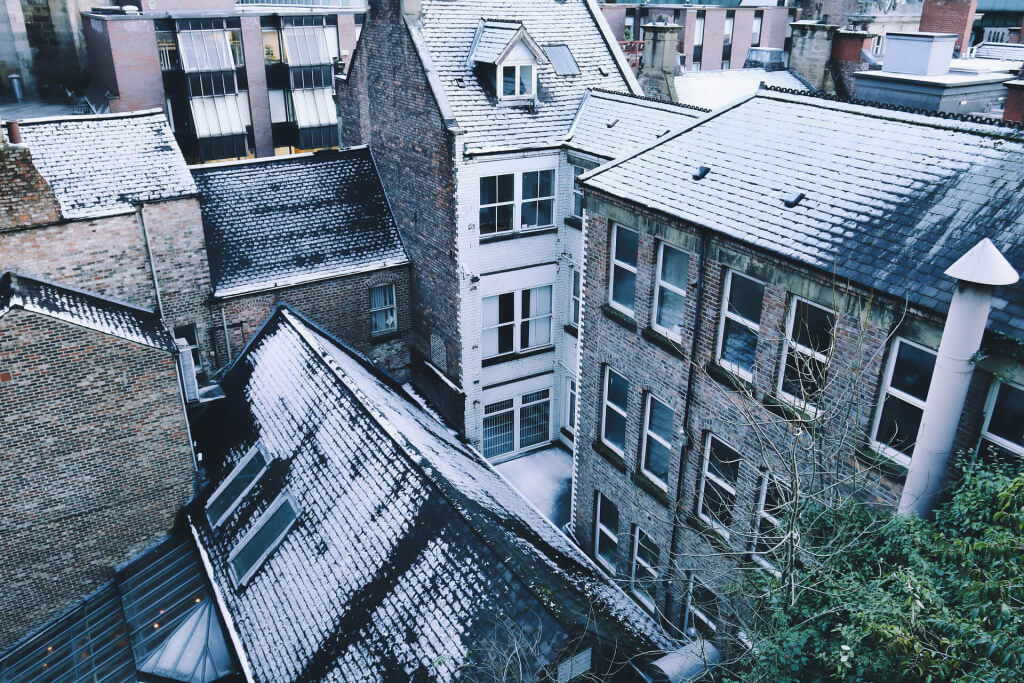
Do I need to ventilate my house in winter?
Date: 12 / 11 / 2021
Winter is coming again and the temperatures are slowly dropping. All windows, doors and ventilation grilles are closed again, so that the cold stays outside. This sounds very logical, but it is not good for the indoor climate. Good ventilation still is extremely important, but what is the best way to do this in winter? In this blog we would like to explain how you can do this.
Why do I need to ventilate my house in winter? All my windows and doors stay closed, right?
A healthy indoor climate is especially important during the winter months. Why do I have to do this? There is a lot of moisture in your house. Especially in winter, the moisture percentage increases. Moisture can only leave the house through proper ventilation. In addition, ventilation ensures that there is fresh and healthy indoor air in your home.
An enthalpy exchanger
Standard ventilation systems are not always able to keep moisture levels in order. An enthalpy exchanger is. When you have an enthalpy exchanger in your HRV unit, the exchanger regulates the moisture level in the house. When there is a lot of moisture in the air, the exchanger extracts it. When dry air is drawn in again, the stored moisture is added to the dry air. In this way, the moisture level in your house remains in balance. In addition, a HRV unit with an enthalpy exchanger saves energy.
Unfortunately, an enthalpy exchanger cannot be connected to all systems. At the moment, we have a number of Zehnder enthalpy exchangers in our range.
But what happens if I do not ventilate my house in winter?
As you have read above, in the winter months, you tend to keep your windows and ventilation grilles closed as much as possible. The advantage is that the cold air stays outside. The disadvantage is that the moisture cannot leave the house. Too much moisture can cause problems such as sleeping problems, skin complaints, headaches and lung disease (think of asthma or allergies).
The house dust mite also grows in nice and cold winters. In general, the house dust mite is present all year round and in summer it grows into a large population. But because the windows are open and being outside a lot, it doesn't really bother you and your house. This will change as soon as autumn comes. The windows are closed and the heating is turned on as high as possible. The house dust mite behind the heating will move and then float through the house, which increases the chance of inhalation. This can cause asthma attacks. It is therefore important to ventilate well to get rid of the dust mite.
Tips for good ventilation:
It is best to always keep your windows and doors closed. If you open your windows, you can suffer from fine dust in your home. In addition, if you open your windows and doors in winter, it will cause unnecessary cold.
Nowadays, most new-build houses have double glazing and a mechanical ventilation system. To continue to ventilate properly, you may not turn off this mechanical ventilation system.
We also have a few good tips to ventilate even better:
- Ventilate extra if you are cooking, showering or if there when there are a lot of people in the house.
- Reduce the moisture in your home by cooking with a lid on your pan and dry your floors immediately after mopping.
- Even in humid weather you can ventilate, the outside air is often cleaner and drier than the air in the house.
- Regularly check that your ventilation grilles are working properly and are clean.
- Make sure you regularly air your rooms (especially bedrooms), usually 10 to 30 minutes is sufficient for this. Tip: if you do turn your heating down, you will avoid unnecessary heat loss.
- Do not turn off your mechanical ventilation, only unplug the power cord during maintenance.
- Have your MVHR-unit cleaned by your installer every two years.
If you have any questions, please feel free to contact us!
Also read:
- The replacement of MVHR-filters
